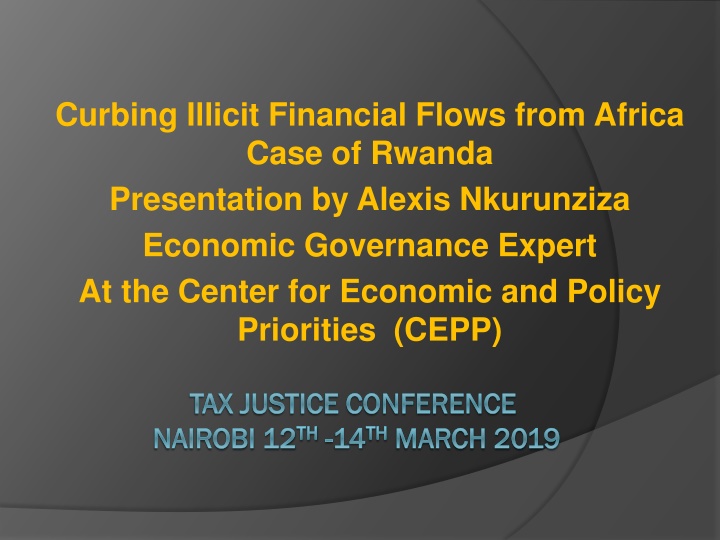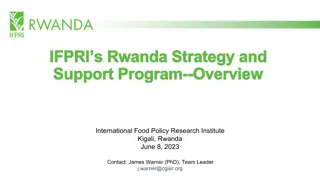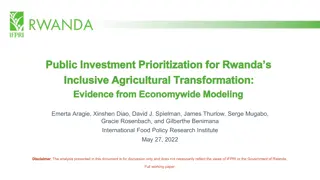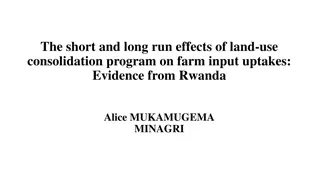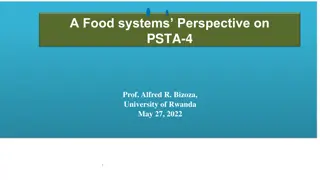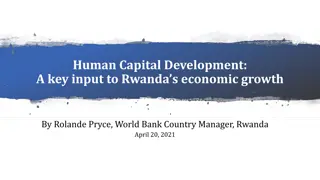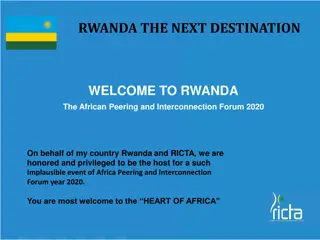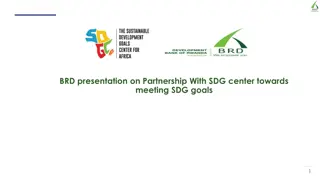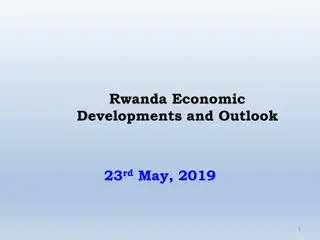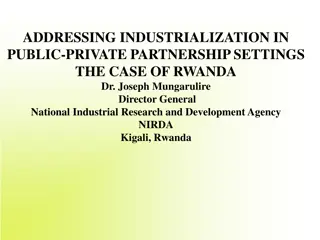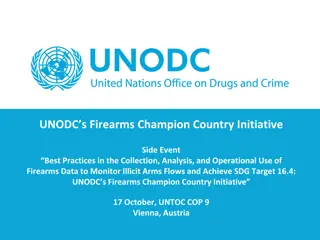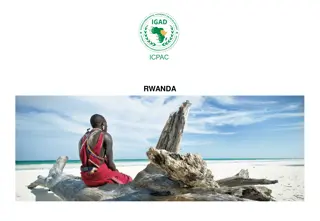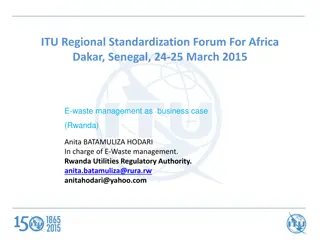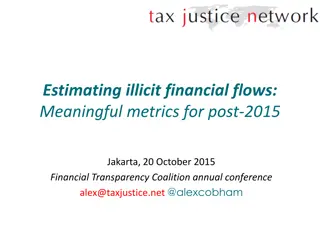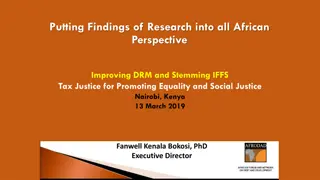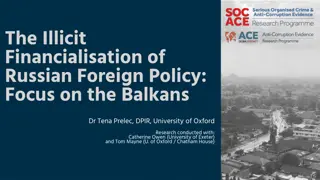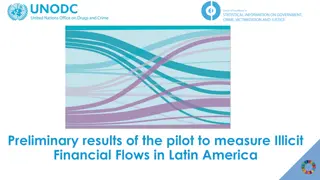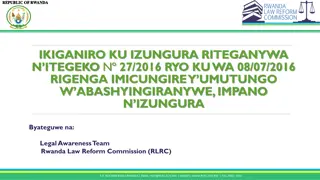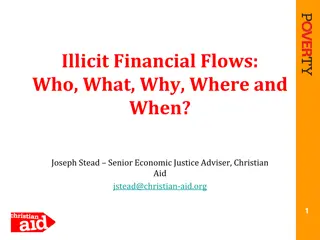Curbing Illicit Financial Flows from Africa: Rwanda's Strategies
Illicit financial flows pose a significant threat to developing countries like Rwanda, impacting economies and fostering corruption. This presentation by Alexis Nkurunziza sheds light on the impact of IFFs, strategies to tackle them, and Rwanda's efforts in fighting corruption. Discover how increasing financial transparency and collaboration across stakeholders can help combat this global issue.
Download Presentation

Please find below an Image/Link to download the presentation.
The content on the website is provided AS IS for your information and personal use only. It may not be sold, licensed, or shared on other websites without obtaining consent from the author.If you encounter any issues during the download, it is possible that the publisher has removed the file from their server.
You are allowed to download the files provided on this website for personal or commercial use, subject to the condition that they are used lawfully. All files are the property of their respective owners.
The content on the website is provided AS IS for your information and personal use only. It may not be sold, licensed, or shared on other websites without obtaining consent from the author.
E N D
Presentation Transcript
Curbing Illicit Financial Flows from Africa Case of Rwanda Presentation by Alexis Nkurunziza Economic Governance Expert At the Center for Economic and Policy Priorities (CEPP) TAX JUSTICE CONFERENCE TAX JUSTICE CONFERENCE NAIROBI 12 NAIROBI 12TH 14TH TH- -14 THMARCH 2019 MARCH 2019
Presentation outline Understanding the Illicit Financial Flow The Impact of IFF on Developing Countries What to do on IFF? What Rwanda has managed to put in place to fight corruption and curbing the IFF? Conclusion & Recommendation
Understanding IFF Understanding IFF Illicit financial flows (IFFs) are illegal movements of money or capital from one country to another. Especially when fund are illegally earned, transferred, and/or utilized. E g. 1: An importer using trade miss invoicing to evade customs duties, VAT, or income taxes; A corrupt public official using an anonymous company to transfer dirty money to a bank account in a money paradise country ; Or an PO escaping declaring his assets to escape taxes GFI estimates that in 2013, US$1.1 trillion left developing countries in illicit financial outflows. This shows how serious this problem is
The Impact of IFF on Developing Countries? The Impact of IFF on Developing Countries? Ruin of natural resources and economy Making weak your economic system Lack of your economy control Establishing a stronger corrupt systems Promotion of cartels Decrease of tax revenues Where Does the Money Go? Every dollar that leaves one country must end up in another. Very often, this means that illicit financial outflows from developing countries ultimately end up in banks in developed. This does not happen by accident. Many countries and their institutions actively facilitate and reap enormous profits of massive amounts of money from developing countries. Developed countries have a responsibility, a big stake alongside developing countries to curtail the flow of illicit money.
What What to do on to do on Illicit Financial Flows? Illicit Financial Flows? The most effective way to limit illicit financial flows is to increase financial transparency. By enacting laws and policies to: Detect and deter cross-border tax evasion; Eliminate anonymous shell companies; Strengthen anti-money practices; Work to curtail trade miss invoicing; and Improve transparency of multinational corporations. Fostering the culture of accountability from all stakeholders ( Governments, Private Sector and the Civil Society) laundering laws and
What Rwanda has managed to put in place to What Rwanda has managed to put in place to fight corruption and curbing IFF? fight corruption and curbing IFF? An anti corruption law / Various policies to curb corruption A law to declare assets for Public officials in offices Institutionalizing the Public Account Committee at the Parliament to follow up on cases of corruption and utilization of public funds Anti corruption Unit within the Rwanda Investigation Bureau The Financial Intelligence Unit within the Central Bank , Last year the GoR enacted a law that will track money laundering and embezzlement by public officials while in offices , so that they can pay back
Conclusion & Recommendation Even though Rwanda is working tirelessly to curb corruption and IFF, Rwanda is also in the battle to attract more investors , and sometimes if countries don t pay much attention, it is when IFF finds ground Despite efforts to curb Corruption and IFF , Rwanda still have issues of miss invoicing like several countries in Africa, we do still lose huge money in this Access of data for bilateral investments , Only government can access these information , civil society can not and this is the beginning of the lack of transparency. Lack of an independent Anti Corruption Body that can bring all stakeholders on board No much capacity for CSOs to engage and track IFF agreements and
